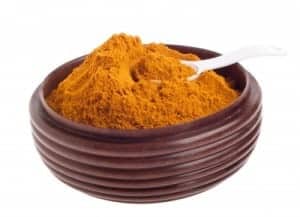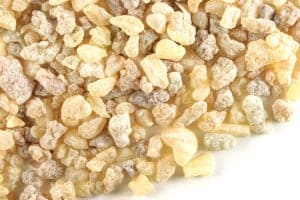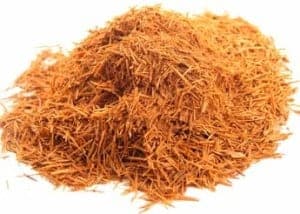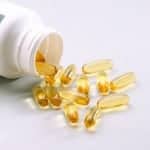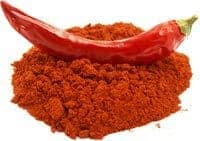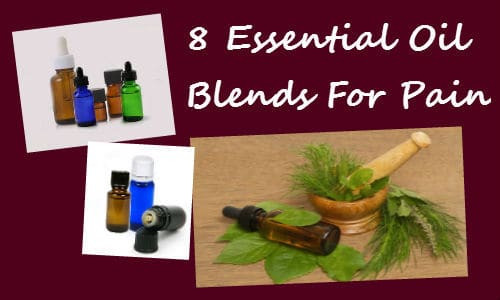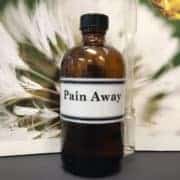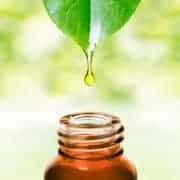7 Natural Ways to Cool Down Inflammation
Inflammation
More people deal with inflammation now than ever before. It’s more common than you may think. It isn’t just limited to injuries or major diseases such as MS, Lupus, Fibromyalgia, or Arthritis. Our nerves, veins, and arteries can become damaged and inflamed. Our organs can even become inflamed as well by constantly being overworked to accommodate them not having what they need to function properly. Normal inflammation actually isn’t bad, and is part of the body’s immune response. It occurs when the body is trying to remove harmful pathogens, damaged cells, irritants, and stimuli. Inflammation is needed in the healing process, but problems can arise when there’s an overactive immune response which creates excessive inflammation.
Our bodies are made to be a wonderful well-oiled precision machine. Sort of like a train when everything is in sync and running well. But when a train is out of sync, it can have disastrous results. Our bodies are the same way when they get out of whack. If it stays that way, then you’ll usually end up experiencing inflammation somewhere in your body. There are various factors that have been found to trigger inflammation.
Some Inflammation Triggers
- Injuries
- Disease
- Damage such as a tear in your artery
- Infection
- Constant stress (especially higher levels of it)
- Eating processed foods (especially if you’re eating more processed food than fresh food. Processed foods often have chemicals in it that can send our body in disarray over time)
- Constant lack of sleep
- Radiation
- Environmental
- Prescriptions (inflammation can be a side effect. Make sure you always read all of any prescription information that you may be taking. Don’t hesitate to talk to your doctor if you find that some changes need to be made.)
- Over-worked organs
- Allergic reactions
Studies indicate that various herbs and supplements may assist with inflammation. Let’s take a look at some of them.
1. Turmeric
This spice often used in curry food for its color and flavor have been shown to have anti-inflammatory properties. This is mainly because of its active component, curcumin. It’s known to decrease the level of two enzymes that cause inflammation. Turmeric is also has blood-thinning properties, so take precaution if you’re taking blood thinners or about to have surgery. You can actually use the spice itself in your food, or take the supplement.
2. Boswellia
This herb has been uses for centuries to relieve many kinds inflammation conditions. As research continues, boswellia has been shown to be useful in relieving chronic inflammation such as osteoarthritis, rheumatoid arthritis (RA), asthma, inflammatory bowel disease, and others.
Studies show that it may be an effective anti-inflammatory and painkiller without side effects like nonsteroidal anti-inflammatory drugs (NSAIDs) such as ibuprofen. Many components of Boswellia inhibit different enzymes that are involved in the inflammation process. NSAIDs inhibits one enzyme to alleviate inflammation, but blocks another one that helps maintain a healthy stomach lining.
3. Cat’s Claw
This is a high-climbing vine from the basin of the Amazon rainforest and other places in Central and South America. It’s known to demonstrate immune-boosting, antioxidant, and anti-inflammatory properties. Research has shown that it inhibits the activity of proteins that set the stage for inflammation. Cat’s Claw can be taken in capsule form or tea.
4. Ginger
Most people know ginger as a zesty spice. But did you know that it has anti-inflammatory properties too? It has been used in Chinese medicine for centuries. The exact form of ginger may lower the level of prostaglandins, the body’s natural pain-causing compounds. Ginger can be consumed in a variety of ways: pill, tea, powdered spice, fresh ginger root, ginger ale from real ginger, and crystallized ginger.
5. Devil’s Claw
Native to South Africa, the roots of this unusual hook-looking plant have been used for medicinal purposes for thousands of years. Studies have shown that Devil’s Claw may ease inflammation such as arthritis and gout. Research is still being done to further understand how the components of the herb may lessen inflammation. There has also been strong evidence that Devil’s Claw may reduce pain too.
6. Omega-3
These essential fatty acids (EFAs) from fish oil are mostly found in oily cold-water fish such as salmon. Our bodies can’t naturally make omega-3, so we can have to get it from outside sources. Along with its many health benefits, numerous studies have found that omega-3 fatty acids eicosapentaenoic acid (EPA) and docosahexaenoic acid (DHA) convert into natural anti-inflammatory compounds that effectively reduce inflammation. It acts like a stop sign for inflammation that has gotten out of hand, and promotes natural healing in our bodies. The typical American diet includes far more omega 6 (another EFA) than omega-3 with foods such as eggs, whole-grain bread, cereals, and margarine. However, nutritionists have found that balancing your intake of omega 3 and omega 6 is key to maximizing their benefits.
7. Cayenne
Muy calienté (very hot)! This same pepper that adds heat to your dishes may also relieve that inflammation flare up. Capsaicin is the component in cayenne that gives the pepper is spicy taste, and is known to ease pain. It reduces the amount of a chemical that carries pain messages to the brain called substance P. You feel relief because the pain messages don’t reach the brain.
So whether you’re taking the herbs and supplements individually or found a product that combines some of them, I hope you find what works for you in putting out the flames of inflammation. Check out our article on other alternative ways to help inflammation.
Disclaimer
These statements are for informational purposes only and have not been evaluated by the Food and Drug Administration. This information and these products are not intended to diagnose, treat, cure or prevent any disease. If you are pregnant, nursing, taking medication, or have a medical condition, consult your physician before using these products.
References
- Nahid Akhtar and Tariq M. Haqqi. Current nutraceuticals in the management of osteoarthritis: a review. Ther Adv Musculoskelet Dis. 2012 Jun; 4(3): 181–207.
- Siddiqui MZ. Boswellia serrata, a potential anti-inflammatory agent: an overview. Indian J Pharm Sci. 2011 May;73(3):255-61.
- Gerbeth K, Hüsch J, Fricker G, Werz O, Schubert-Zsilavecz M, Abdel-Tawab M. In vitro metabolism, permeation, and brain availability of six major boswellic acids from Boswellia serrata gum resins. Fitoterapia. 2013 Jan;84:99-106. doi: 10.1016/j.fitote.2012.10.009. Epub 2012 Oct 24.
- Sandoval M1, Okuhama NN, Zhang XJ, Condezo LA, Lao J, Angeles’ FM, Musah RA, Bobrowski P, Miller MJ. Anti-inflammatory and antioxidant activities of cat’s claw (Uncaria tomentosa and Uncaria guianensis) are independent of their alkaloid content. Phytomedicine. 2002 May;9(4):325-37.
- Grzanna R, Lindmark L, Frondoza CG. Ginger–an herbal medicinal product with broad anti-inflammatory actions. J Med Food. 2005 Summer;8(2):125-32.
- Simopoulos AP. Omega-3 fatty acids in inflammation and autoimmune diseases. J Am Coll Nutr. 2002 Dec;21(6):495-505.
- Joseph C. Maroon, Jeffrey W. Bost, and Adara Maroon. Natural anti-inflammatory agents for pain relief. Surg Neurol Int. 2010; 1: 80. Published online 2010 Dec13. doi: 10.4103/2152-7806.73804.
- www.wholehealthmd.com/ cat’s claw/ ginger/ devil’s claw/ cayenne
- www.healthline.com/boswellia
- University of Maryland Medical Center- www.umm.edu / omega-3/ cayenne
- Image courtesy of Sommai/ FreeDigitalPhotos.net
- Image courtesy of artur84/ FreeDigitalPhotos.net


